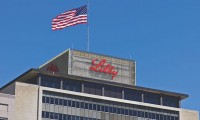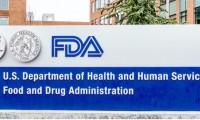-
AstraZeneca and generative AI company Absci enter $247m oncology partnership
- Source: drugdu
- 117
- December 8, 2023
-
As Stelara cliff looms, J&J expects 25 blockbuster drugs to drive future sales growth
- Source: drugdu
- 92
- December 7, 2023
-
Lilly’s Jaypirca blazes leukemia trail with FDA nod, fast confirmatory trial filing
- Source: drugdu
- 95
- December 6, 2023
-
Rising Cost of New Medications, Will the People Who Need Them Most be able to Afford them?
- Source: drugdu
- 97
- December 5, 2023
-
3 Trends Employers Should Watch Out for in 2024
- Source: drugdu
- 248
- December 5, 2023
-
Phenomic scores two deals in two days with Boehringer and Astellas
- Source: drugdu
- 119
- December 5, 2023
-
Eli Lilly and PRISM BioLab enter drug discovery collaboration worth over $660m
- Source: drugdu
- 101
- December 5, 2023
-
FDA to investigate risk of T-cell malignancy from CAR-T cell immunotherapies
- Source: drugdu
- 99
- December 4, 2023
-
Boehringer Ingelheim and IBM announce AI antibody drug discovery partnership
- Source: drugdu
- 105
- December 4, 2023
-
Phase 3 Trial for GSK’s Blenrep Yields Positive Results in Relapsed or Refractory Multiple Myeloma
- Source: drugdu
- 102
- December 2, 2023
your submission has already been received.
OK
Subscribe
Please enter a valid Email address!
Submit
The most relevant industry news & insight will be sent to you every two weeks.













